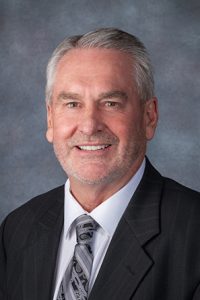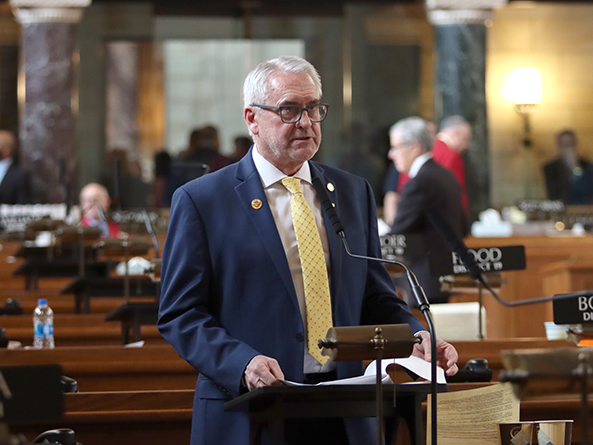Rural development tax credit increase advanced
A bill that would increase the amount of tax incentives available for certain livestock modernization or expansion projects and other qualifying rural Nebraska businesses advanced from general file April 7.

LB1261, introduced by Glenvil Sen. Dave Murman, would make two changes to the Nebraska Advantage Rural Development Act, which provides refundable income tax credits based on a company’s employment and investment.
Currently, the state tax commissioner may not approve further applications for incentives under the program once the expected credits from approved projects total $1 million each year. Murman’s proposal would increase the cap to $25 million per year beginning in 2022.
“There is far more demand for these incentives in terms of applications than the program currently provides, so this would help address the unmet demand,” he said.
The bill also would increase the maximum amount of the credit available for taxpayers who invest in certain livestock modernization or expansion projects from $150,000 per application to $500,000.
The state Department of Revenue estimates that LB1261 would reduce state general fund revenue by $11.5 million in fiscal year 2023-24, $5.8 million in FY2024-25 and $2.3 million in FY2025-26.
Currently, no new applications may be filed under the act after Dec. 31, 2022. A Revenue Committee amendment, adopted 36-0, would extend the sunset date to Dec. 31, 2027.
Murman introduced an amendment, adopted 38-0, that includes provisions of LB596, introduced by Sen. Joni Albrecht of Thurston.
Under her proposal, retailers who sell and dispense ethanol blended gasoline formulated with a percentage of at least 15 percent by volume of ethanol would be eligible for a refundable state income tax credit.
The credit would equal 5 cents per gallon of E-15 sold during the prior calendar year through a motor fuel pump located at the taxpayer’s motor fuel site and 8 cents per gallon of E-25 or higher blend.
The amendment would limit total credits to $2 million in 2022. The annual limit for following years could double if the annual amount of tax credits approved in the prior calendar year exceeded 90 percent of that year’s annual limit. The annual limit could not exceed $4 million.
No new applications for credits could be filed under the program after Dec. 31, 2026.
The state Department of Revenue estimates that the proposal would reduce state general fund revenue by $1.6 million in FY2021-22 and $1.7 million in both FY2022-23 and FY2023-24.
Following adoption of the amendments, lawmakers voted 35-0 to advance LB1261 to select file.


